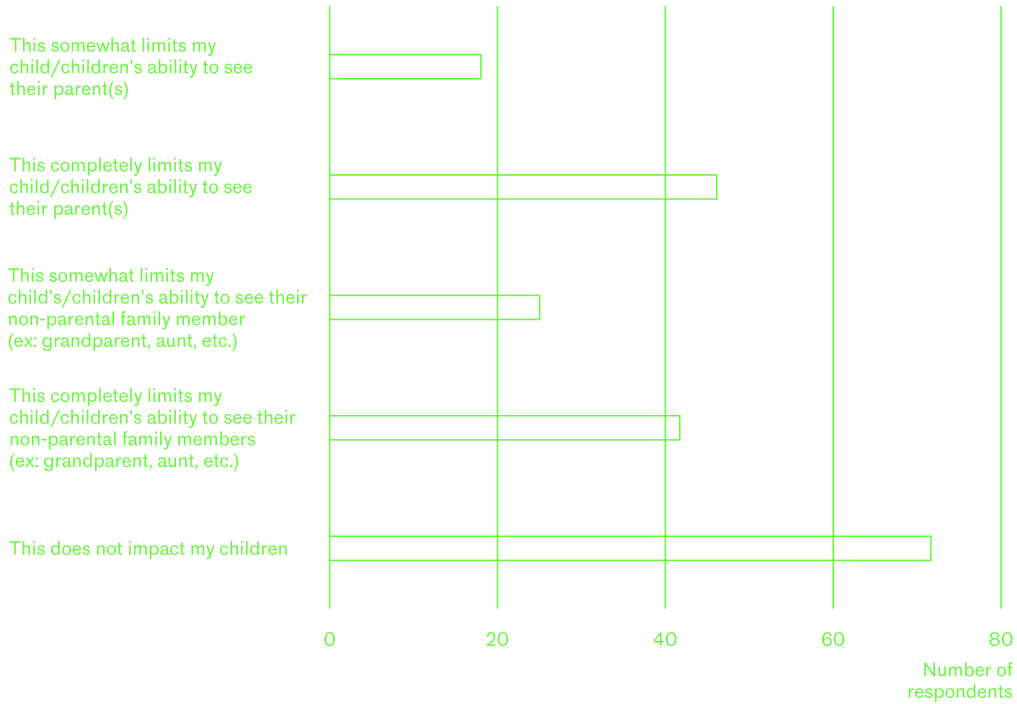



Written by Dr. David Edward-Ooi Poon, founder of the Faces of Advocacy, a grassroots organization with over 10,000 members. The group is dedicated to the safe reunification of families in Canada during the COVID-19 pandemic and was directly responsible for the Extended Family Exemptions announced by the Government of Canada on October 2nd 2020.
Written by Dr. David Edward-Ooi Poon, founder of the Faces of Advocacy, a grassroots organization with over 10,000 members. The group is dedicated to the safe reunification of families in Canada during the COVID-19 pandemic and was directly responsible for the Extended Family Exemptions announced by the Government of Canada on October 2nd 2020.
By the end of March 2020, when the COVID-19 travel restrictions were put into place between multiple countries in the world, most governments allowed only essential travel – medical personnel, truckers, food harvesters, etc.
What was not considered essential was family.
There was the pandemic. And what became the shadow pandemic of the looming mental health crisis under the shared trauma experienced during COVID-19.
The organization I founded, the Faces of Advocacy, indexed the mental health of over 1200 members over multiple surveys, with the most recent in February 2021. We used validated mental health screening tools, the PHQ2, GAD7, and the PCL-C, to assess symptoms of depression, anxiety, and post-traumatic stress disorder respectively. Because these tools were not administered by a healthcare professional, only seen through surveys, these results are non-diagnostic - however they paint an evidence-based picture of the suffering endured through moments lost, sadness in isolation, and families without hope.
What was not considered essential was family.
There was the pandemic. And what became the shadow pandemic of the looming mental health crisis under the shared trauma experienced during COVID-19.
The organization I founded, the Faces of Advocacy, indexed the mental health of over 1200 members over multiple surveys, with the most recent in February 2021. We used validated mental health screening tools, the PHQ2, GAD7, and the PCL-C, to assess symptoms of depression, anxiety, and post-traumatic stress disorder respectively. Because these tools were not administered by a healthcare professional, only seen through surveys, these results are non-diagnostic - however they paint an evidence-based picture of the suffering endured through moments lost, sadness in isolation, and families without hope.
“97% of respondents have felt that their mental health is on a downward trajectory the longer they were separated from their loved one(s).”
“97% of respondents have felt that their mental health is on a downward trajectory the longer they were separated from their loved one(s).”
While our research is within the Canadian border, the pain of family separation is a universal, worldwide sorrow that must be acknowledged in order to be addressed.
Put simply, 97% of respondents have felt that their mental health is on a downward trajectory the longer they were separated from their loved one(s).
Yet in stark contrast, when asked if they have access to supportive resources or people for their mental health, 26% of respondents were neutral, and 32% disagree or strongly disagree. This meant that fewer than half responded that they had sufficient support to bear the mental health challenges of separation.
Yet in stark contrast, when asked if they have access to supportive resources or people for their mental health, 26% of respondents were neutral, and 32% disagree or strongly disagree. This meant that fewer than half responded that they had sufficient support to bear the mental health challenges of separation.
Do you feel like your mental health is growing worse the longer you're separated from your loved one(s)?
![]()

"I feel like I have supportive people/resources to turn to when my mental health is poor”
![]()

52.3% of respondents answered that they have never previously been professionally diagnosed with a mental illness. Despite this, an alarming 66.2% would be symptomatic and screen positive for symptoms of moderate to severe clinical depression under the PHQ-2 Depression Questionnaire.
This suggests that the psychological burdens were not only impacting those previously affected by mental illness, but in fact the pain of family separation could be manifesting itself as mental illness symptomatology.
This suggests that the psychological burdens were not only impacting those previously affected by mental illness, but in fact the pain of family separation could be manifesting itself as mental illness symptomatology.
Over the past 2 weeks, how often have you been bothered by any of the following problems: feeling down, depressed and/or hopeless

The Harvard Educational Review has shown past immigration issues can result in the long term traumatic, depressive, and anxiogenic effects on children separated from their parents. With COVID-19 taking so much already, do we want pandemic policies to further harm these children?
Our internal Canadian data showed that 41.1% of respondents had children. Of that group, 23.19% responded that the Canadian restrictions completely stopped their child/children from seeing their parent(s). 20.29% said that this completely stops their child/children from seeing their non-parental family member (ex: grandparent, aunt, etc.), while 11.59% stated that this somewhat limits their child/children from seeing that same non-parental family member. And 9.18% said that this somewhat limits their child/children from seeing their parent(s) due to decreased frequency of visits. Overall, 64.25% of children involved are impacted from not seeing their family member(s).
Our internal Canadian data showed that 41.1% of respondents had children. Of that group, 23.19% responded that the Canadian restrictions completely stopped their child/children from seeing their parent(s). 20.29% said that this completely stops their child/children from seeing their non-parental family member (ex: grandparent, aunt, etc.), while 11.59% stated that this somewhat limits their child/children from seeing that same non-parental family member. And 9.18% said that this somewhat limits their child/children from seeing their parent(s) due to decreased frequency of visits. Overall, 64.25% of children involved are impacted from not seeing their family member(s).
How do the new travel restrictions impact your children?

“A majority of those who have had thoughts of self-harm and/or suicide are separated from their loved one(s).
And yet, these are the families that the world did not deem essential.”
“A majority of those who have had thoughts of self-harm and/or suicide are separated from their loved one(s).
And yet, these are the families that the world did not deem essential.”
16% of respondents had a history of self-harm and/or suicidal thoughts prior to the travel restrictions. This number more than doubles, leaping to 39%, after the implementation of the Canadian travel restrictions. A majority of those who have had thoughts of self-harm and/or suicide are separated from their loved one(s).
Do you have a history of self-harm and/or suicidal thoughts/attempts (prior to the ravel restrictions)?
![]()

Since the implementation of Canadian travel restrictions, have you had thoughts of self-harm and/or suicide?
![]()

And yet, these are the families that the world did not deem essential.
Exacerbating these mental health concerns are the moments lost. The stories people will never get back with those they love. People are more than statistics.
These experiences are not exclusive to Canada. The pain of family separation is universal, and the mental health impact can be incalculable. The World Health Organization approved a "Comprehensive Mental Health Action Plan for 2013-2020" eight years ago. As with all medicine, the social determinants of health must be addressed.
This includes family.
Family reunification must not be vilified. It is an unshakable need, the core draw to be with your loved ones particularly during a worldwide crisis, not in spite of it. COVID-19 will be with us for a long time. We must prepare and plan to both protect life and live life. Family may keep the world together in a time when we have lost so much.
Mental health has suffered. Families have suffered. People have suffered.
Family is essential.
Exacerbating these mental health concerns are the moments lost. The stories people will never get back with those they love. People are more than statistics.
These experiences are not exclusive to Canada. The pain of family separation is universal, and the mental health impact can be incalculable. The World Health Organization approved a "Comprehensive Mental Health Action Plan for 2013-2020" eight years ago. As with all medicine, the social determinants of health must be addressed.
This includes family.
Family reunification must not be vilified. It is an unshakable need, the core draw to be with your loved ones particularly during a worldwide crisis, not in spite of it. COVID-19 will be with us for a long time. We must prepare and plan to both protect life and live life. Family may keep the world together in a time when we have lost so much.
Mental health has suffered. Families have suffered. People have suffered.
Family is essential.


